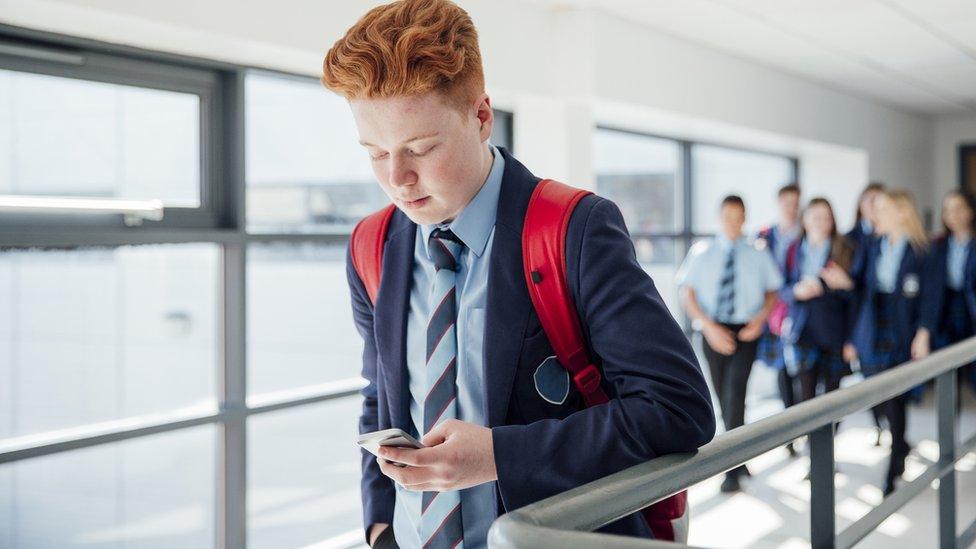LGBT bullying in schools is more common than other kinds, says poll
- Published

People being bullied for being lesbian, gay, bisexual or transgender (LGBT) is more common than bullying relating to racism, sexism or religion, according to new research.
A poll of more than 1,000 teachers working in UK primary or secondary schools revealed that 13% of children are bullied because of their sexuality.
This is compared to 11% because of their race, 7% because of their gender and 2% because of their religion.
The research also showed almost three-quarters of teachers have seen homophobic bullying in school.
Bullying is when someone - or a group of people - repeatedly and intentionally hurt, insult or intimidate another person or people.
One type of homophobic bullying is when people use words like "gay" or "lesbian" as an insult.
What is homophobic bullying?
The poll, conducted by research company YouGov for Amazon, also showed that more than half of people backed LGBT relationship education in schools, while a quarter said children should not learn about gay relationships in schools, and 16% were unsure.
Pop star and actor Will Young has teamed up with Amazon, LGBT+ education charity Just Like Us and PinkNews to encourage LGBT education in schools by introducing more diverse books to pupils.
The singer, who says he knew he was gay from an early age, says that if there had been more information when he was younger, he would not have felt so isolated.
"If there had been some literature that was made available to me, then maybe I wouldn't have felt so alone," he said.
How to be kind to each other
New guidance on relationships and sex education for schools was recently published by the government.
It includes a requirement for secondary schools to teach about sexual orientation and gender identity, and for primary schools to teach about different families, including LGBT ones.
If you are worried that you or anyone that you know is being bullied, speak to an adult that you trust you about it. That might be a teacher or someone in your family.
You can find more help and advice on the new Own It app.
Or you can call ChildLine for free on 0800 1111.
- Published3 July 2018
- Published6 November 2023
- Published17 November 2014
